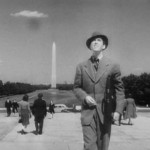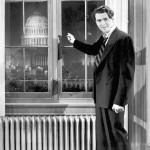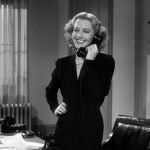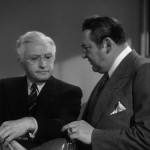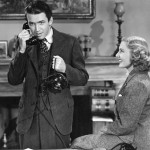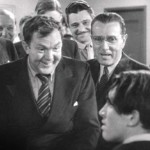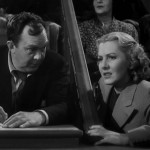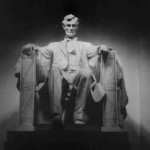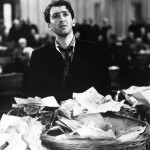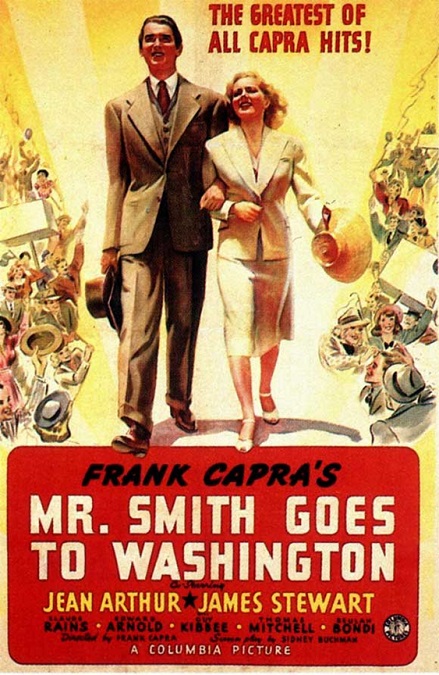
Mr. Smith Goes to Washington – 1939
Ah, Mr. Capra… You’ve done it again. And again. And again. I hate to say it, but if you have seen several other films directed by Frank Capra, you’ve seen Mr. Smith Goes to Washington. In fact, this movie was almost an exact copy of previous Best Picture Nominee, Mr. Deeds Goes to Town. Only the names have been changed to protect the innocent.
First, the overall message of the film is the same. There are things in life that are more important than money. Second, anyone that has money is automatically corrupt and dishonest. And third, if anyone doesn’t have any money, he is quirky, honest, generous, and ultimately wiser than anyone else.
However, having said all that, I will also say that I know why Capra’s movies kept doing so well. It is because they stress the importance of All-American values that, by today’s standards, represent a time of innocence and integrity in our nation’s history. They promote clean Christian values and speak to those who share those values. And it doesn’t hurt that the guy always gets the girl in the end.
But what sets this one apart from the rest is really two-fold. First, it has James Stewart in the lead role. Stewart plays the title character, Mr. Smith, a country bumpkin that is something of a boy-scout leader. He believes in the inherent goodness of all young boys that can be nurtured by spending time in outdoor activities like camping and the like.
Second, this film came out in 1939, which of course, was the first year of World War II. The fact that it took place in Washington, was about a man fighting against evil and corrupt politicians and businessmen, and showed a whole lot of imagery that promoted American patriotism, was not lost on me. The Lincoln Memorial, in particular, was shown in great detail.
The afore-mentioned politicians and businessmen have a sneaky and dishonest plan to make a lot of money by destroying a nature reserve that happens to be Mr. Smith’s favorite camping grounds. In order to get the bill that will make this underhanded deal a reality, they need to fill a vacant seat in the Senate, using a stooge who will vote for the bill without knowing what he is voting for. But when Mr. Smith finds out what it will do to his nature reserve, he ineptly attempts to stop the bill.
The businessman is Jim Taylor, played by Edward Arnold. The politician that is in his pocket is Senator Joseph Paine, played by Claude Rains. Together they go out of their way to destroy Mr. Smith’s credibility and ruin his reputation. And they nearly succeed. But here is where our heroine comes in. She is a woman who knows how to play the White House game with the best of them. She is Clarissa Saunders, played by Jean Arthur. She is smart and beautiful, cynical and easily swayed by Mr. Smith’s innocence and naiveté. She is hired to be Smith’s secretary.
The main players all did a fine job. Arthur, in particular was a pleasure to watch. Of course, Stewart is always good in whatever role he plays. But there was a small supporting role that I really ended up liking. Thomas Mitchell played “Diz” Moore, an alcoholic news reporter that had a thing for Miss Saunders. He lent some extra humor to the somewhat serious nature of the plot. Also, Guy Kibbee played corrupt Governor, Hubert “Happy” Hopper.
The only thing I really had a problem with, plot-wise, was the fact that Smith was such an absent-minded man that he would not have been able to survive in the real world. He was stupid and rude and I couldn’t stop rolling my eyes. For example, when her first arrives in Washington, he catches one glimpse of the Capitol Dome and is inspired to immediately drop what he is doing and leave the train station to go on a sight-seeing tour of Washington D.C. Never-mind that he simply walks away from all his baggage, leaving it on the floor of the train station. Never-mind that he keeps people waiting for five or six hours, not knowing where he is, what happened to him, or when he would turn up. Anyone that dumb needs constant professional care. I’m sorry, but if patriotism inspired him that much, he should have visited the Capitol earlier in his life. Oh, and lest I forget, you can’t go around town punching reporters in the face because they willfully misquoted you.
